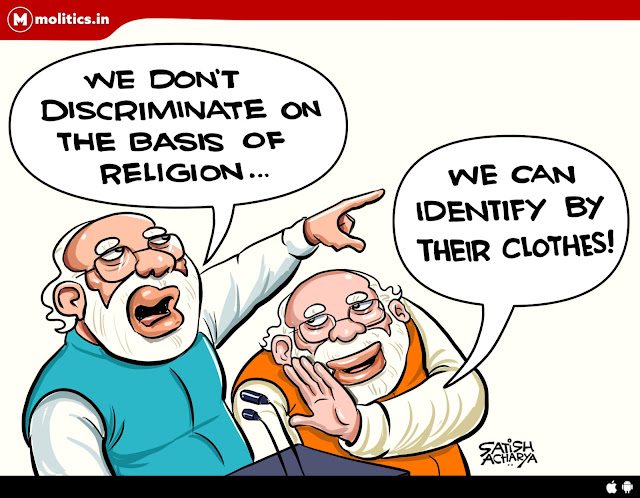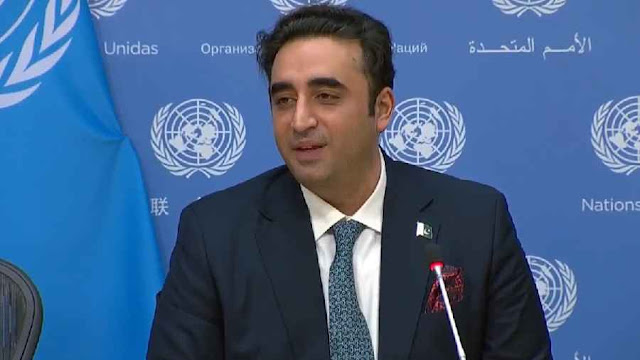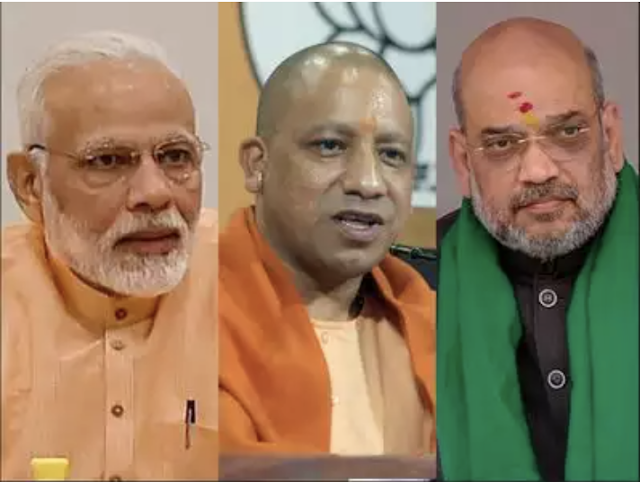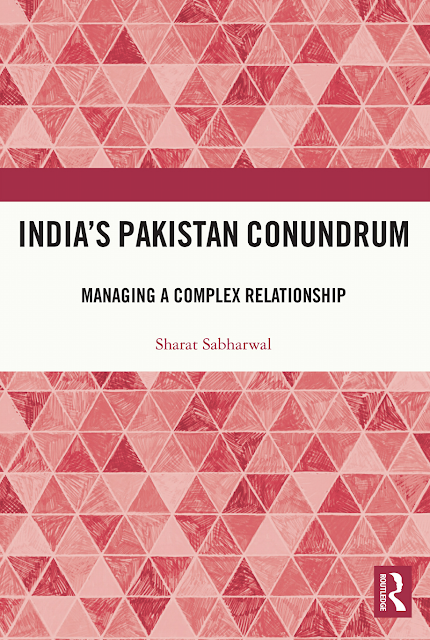Islamophobia is no longer extreme; the year 2017 saw it go mainstream in Europe, India, the United States and several other parts of the world.
Openly Islamophobic Donald J. Trump was inaugurated as president of the United States in 2017. India's largest state of Uttar Pradesh elected rabidly anti-Muslim chief minister Yogi Adiyanath who was hand-picked by Muslim-hating Prime Minister Narendra Modi in 2017. Neo-Nazis made significant electoral gains with their anti-Islam rhetoric in several European nations while Burma and Israel continued to get away with the
murder of innocent Muslim civilians in 2017.
These alarming trends are reminiscent of the rise of Nazi Party led by
Germany's Adolf Hitler who brought disaster to Europe and the rest of the world less than a century ago.
Trump's Muslim Ban:The year of Islamophobia began in earnest on January 20, 2017 with the inauguration of President Donald J. Trump who called for "total and complete shutdown" of Muslims entering the United States during his successful electoral campaign. Among the first executive orders he signed was a "
Muslim Ban" from seven predominantly Muslim countries.
Then came an avalanche of a large number of Islamophobic tweets and retweets from Trump's twitter account. Some recent Trump retweets were of tweets from Britain First's Jayda Fransen. These tweets and retweets were swiftly denounced by top British and Dutch officials. Trump did not apologize.
Trump developed a pattern of using terror attacks to tweet against Muslims while ignoring similar or worse terror attacks by others.
Trump closed the year with recognition of
Jerusalem as Israel's capital, a recognition that prior US administrations had withheld pending negotiations and final settlement of the issues between Israelis and Palestinians.
Hindu Nazis in India:Yogi Adiyanath, known for his highly inflammatory anti-Muslim rhetoric, was hand-picked by Prime Minister Narendra Modi to head India's most populous state of Uttar Pradesh.
Yogi wants to "install statues of Goddess Gauri, Ganesh and Nandi in every mosque”. Before his election, he said, “If one Hindu is killed, we won’t go to the police, we’ll kill 10 Muslims”. He endorsed the
beef lynching of Indian Muslim
Mohammad Akhlaque and demanded that the victim's family be charged with cow slaughter.
In an op ed titled "Hitler's Hindus: The Rise and Rise of India's Nazi-Loving Nationalists" published by leading Israeli newspaper
Haaretz, author Shrenik Rao has raised alarm bells about "large and growing community of Indian Hindu Nazis, who are digitally connected to neo-Nazi counterparts across the world".

Rao talks about Nagpur, a town he describes as the "epicenter of Hindu Nationalism", where he found ‘Hitler’s Den’ pool parlor "that shocked me on a round-India trip 10 years ago was no outlier. Admiration for Nazism – often reframed with a genocidal
hatred for Muslims – is rampant in the Hindu nationalist camp, which has never been as mainstream as it is now".
Hindu nationalists in India have a
long history of admiration for the Nazi leader, including his "Final Solution". In his book "We" (1939), Madhav Sadashiv Golwalkar, the leader of the Hindu Nationalist RSS (Rashtriya Swayamsevak Sangh) wrote, "To keep up the purity of the Race and its culture, Germany shocked the world by her purging the country of the Semitic races -- the Jews. Race pride at its highest has been manifested here. Germany has also shown how well-nigh impossible it is for races and cultures, having differences going to the root, to be assimilated into one united whole, a good lesson for us in Hindusthan to learn and profit by."
Golwalkar, considered the founder of the Hindu Nationalist movement in India, saw Islam and Muslims as enemies. He said: “Ever since that evil day, when Moslems first landed in Hindusthan, right up to the present moment, the Hindu Nation has been gallantly fighting to shake off the despoilers".
Islamophobia in Europe:Dutch expert Cas Mudde, an associate professor at the University of Georgia summed up the rise of Islamophobes in Europe well when he said: "The far right in Europe is more popular today than it was at any time in postwar history".
Alternative für Deutschland (AFD), a modern re-incarnation of Hitler's Nazi Party, stunned the world by becoming the third largest party in German Bundestag in 2017.
Last year, AFD's anti-Islam policies replaced its anti-EU focus with the slogan “Islam is not a part of Germany” emerging from the party’s spring 2017 conference.
In Austria, far-right Freedom Party candidate Sebastian Kurz was recently elected chancellor on the party's anti-Islam platform.
Earlier in 2017, the Dutch anti-Islam Freedom Party of Geert Wilders became the second largest force in parliament.
The French National Front (FN) of Marine Le Pen received nearly 34 percent of votes in the May 2017 presidential run-off that was won by Emmanuel Macron.
Neo-Nazis and Hindu Nazis on Social Media:The advent and growth of online social media have enabled a large and growing community of Indian
Hindu Nazis connected to neo-Nazi counterparts in Europe and America. This came to light a few years ago when the Norwegian white supremacist terrorist
Anders Behring Breivik's manifesto against the "Islamization of Western Europe" was heavily influenced by the kind of anti-Muslim rhetoric which is typical of the
Nazi-loving Hindu Nationalists like late Madhav Sadashiv Golwalkar (1906-1973), and his present-day Sangh Parivar followers and sympathizers in the Bharatiya Janata Party (BJP) who currently rule several Indian states. This Hindutva rhetoric which infected Breivik has been spreading like a virus on the Internet, particularly on many of the well-known Islamophobic hate sites that have sprouted up in Europe and America in recent years. In fact, much of the Breivik manifesto is cut-and-pastes of anti-Muslim
blog posts and columns that validated his worldview.
"It is essential that the European and Indian resistance movements learn from each other and cooperate as much as possible. Our goals are more or less identical," Breivick wrote in his manifesto.
The Christian Science Monitor has reported that "in the case of India, there is significant overlap between Breivik’s rhetoric and strains of Hindu nationalism – or Hindutva – on the question of coexistence with Muslims. Human rights monitors have long decried such rhetoric in India for creating a milieu for communal violence, and the Norway incidents are prompting calls here to confront the issue."
Indian Textbooks Praise Nazis:Adulation for Hitler has found its way into Indian textbooks to influence young impressionable minds. Here's how Rao describes it:
In 2004, when now-Indian Prime Minister Narendra Modi was the Chief Minister of Gujarat, school textbooks published by the Gujarat State Board portrayed Hitler as a hero, and glorified fascism.
The tenth-grade social studies textbook had chapters entitled "Hitler, the Supremo," and "Internal Achievements of Nazism." The section on the "Ideology of Nazism" reads: "Hitler lent dignity and prestige to the German government. He adopted the policy of opposition towards the Jewish people and advocated the supremacy of the German race." The tenth-grade social studies textbook, published by the state of Tamil Nadu in 2011 (with multiple revised editions until 2017) includes chapters glorifying Hitler, praising his "inspiring leadership," "achievements" and how the Nazis "glorified the German state" so, "to maintain a German race with Nordic elements, [Hitler] ordered the Jews to be persecuted."
Mein Kampf has also gone mainstream, becoming a "must-read" management strategy book for India’s business school students. Professors teaching strategy lecture about how a short, depressed man in prison made a goal of taking over the world and built a strategy to achieve it.Modi and Trump:Prime Minister Narendra Modi of India has built his entire political career on the
intense hatred of Muslims. US President Donald Trump built his successful presidential campaign on Islamophobia and xenophobia. That's what the two men have in common.
Just as white racists form the core of Trump's support base in America, the Modi phenomenon in India has been fueled by
Hindu Nationalists whose leaders have praised Adolph Hitler for his hatred of Jews.
M.S. Golwalkar, a Hindu Nationalist who Mr. Modi has described as "worthy of worship"
wrote the following about Muslims in his book "We":
"Ever since that evil day, when Moslems first landed in Hindustan, right up to the present moment, the Hindu Nation has been gallantly fighting on to take on these despoilers. The Race Spirit has been awakening.”
"To keep up the purity of the Race and its culture, Germany shocked the world by her purging the country of the Semitic races -- the Jews. Race pride at its highest has been manifested here. Germany has also shown how well-nigh impossible it is for races and cultures, having differences going to the root, to be assimilated into one united whole, a good lesson for us in Hindusthan to learn and profit by."
Summary:Pew Research has recently reported that anti-Muslim sentiments in the United States have doubled since 2001 from 25% to 50% of the respondents associating Muslims and Islam with violence. Countries like India and
Israel have taken advantage of the "global war on terror" to try to crush genuine independence movements in
Kashmir and Palestine. The simultaneous rise of
Neo Nazis in the West and the Hindu Nazis in India represents a very serious and growing threat to world peace. Their combined menace can lead to a devastating third world war with nuclear weapons if these trends are not halted and reversed soon. I hope good sense prevails among the voters in these countries to pull the world back from the brink of human catastrophe.
Here's retired US General Wesley Clark revealing post-911 inside Pentagon information on plans to finish off 7 Muslim countries in 5 years:

















